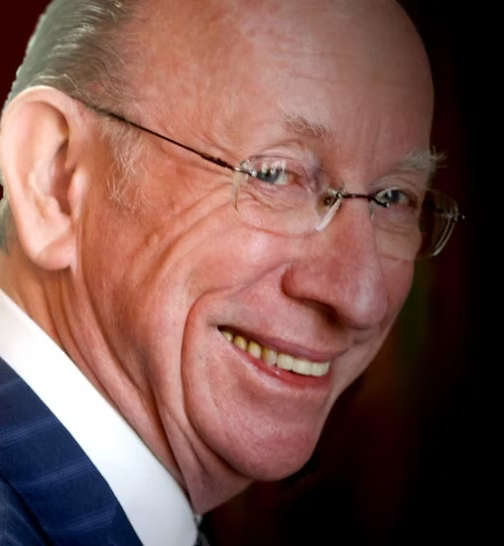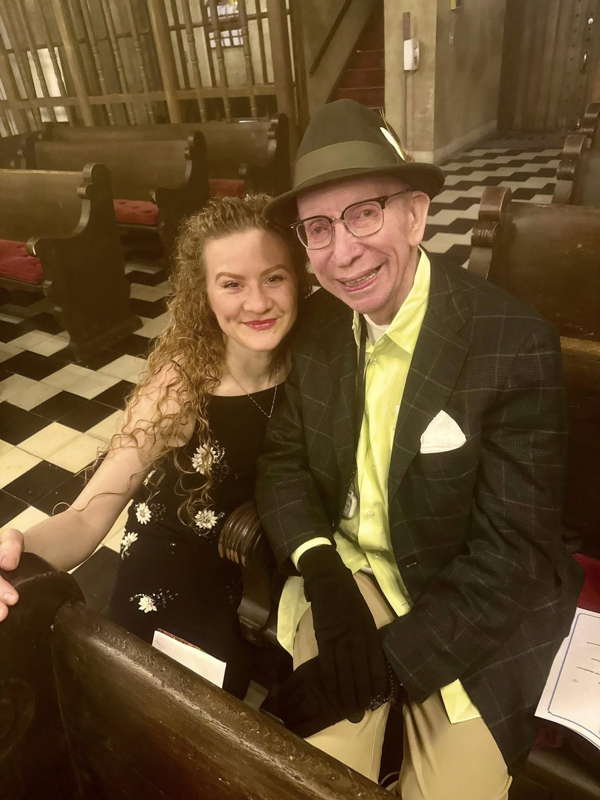 WORD SEARCH: Can you solve Allan Rae's classical music word search puzzles? We're currently publishing one per month.
WORD SEARCH: Can you solve Allan Rae's classical music word search puzzles? We're currently publishing one per month.
 DISCUSSION: John Dante Prevedini leads a discussion about Composers, individuals or collective?, including contributions from David Arditti, Halida Dinova, Robert McCarney and Jane Stanley.
DISCUSSION: John Dante Prevedini leads a discussion about Composers, individuals or collective?, including contributions from David Arditti, Halida Dinova, Robert McCarney and Jane Stanley.
 VIDEO PODCAST: Slava Ukraini! - recorded on the day Europe woke up to the news that Vladimir Putin's Russian forces had invaded Ukraine. Also features Caitríona O'Leary and Eric Fraad discussing their new film Island of Saints, and pays tribute to Joseph Horovitz, Malcolm Troup and Maria Nockin.
VIDEO PODCAST: Slava Ukraini! - recorded on the day Europe woke up to the news that Vladimir Putin's Russian forces had invaded Ukraine. Also features Caitríona O'Leary and Eric Fraad discussing their new film Island of Saints, and pays tribute to Joseph Horovitz, Malcolm Troup and Maria Nockin.
Frank Cooper

Investigating a musical archeologist extraordinare
Obscurity seems to be a gift given to great creators. Bach was known only to the cognoscenti for almost a century, the number of performances of Liszt's great B minor Sonata for twenty years after its creation can be counted on the fingers of one hand, Melville's whale slept for a good fifty years, and Ignaz Brüll's piano concerto waited a century before its first recording.
I beg your pardon? Who?
Brüll (1846-1907) was a nineteenth century composer and pianist who received strict musical education under eminent teachers and eventually, through his talent and good nature, became a very close associate of Brahms. That that great Master highly esteemed Brüll should make us pay attention. Brüll had a significant success with his his 1875 opera Das goldene Kreuz (The Golden Cross), Op 27, which was performed widely. Indeed, he wrote numerous other operas and a considerable amount of music in many genres. His creativity is that of a 'fine, civilized musician', said Frank Cooper in the notes to his 1972 recording. Cooper went on to say of this work that it is: 'a make-believe world of fairy-tales and fables where all is right in the end, and moral ... It is carefree. Grand and warm - suffused with poetry and song from first to last. A handsome work for a lad of twenty.'
Perhaps the disappearance of his music has to do with this spirit, so opposite to the angst ridden twentieth century, or perhaps it was that his music, having been banned during the Nazi era, never recovered its reputation. But, lost he was.
Now, how can this truly be? The usual answer seventy-five years ago was that his music is mediocre and deserves its oblivion.
This is just not true as actually listening to the music will prove. But, many artists of undeniable quality suffered from a vanishing, a disappearance and a neglect for some period of time. The great Roman philosopher Lucretius vanished for the better part of a millenium.
Did Bach, Liszt, Shakespeare, Melville and Proclus deserve their oblivion? Most emphatically: No, and let's see how. At a certain point these creators were rediscovered and made more widely known. Someone helped in the re-evaluation of their legacy (or just rediscovered a mouldy manuscript).
Remember: our modern civilization has learned to respect the archaeologist who digs up fragments of the past. Each new discovery is hailed as a great achievement that widens our knowledge and understanding. This spirit is transferred to other realms than that found in the ground or in barrows of the past.
We can see this transference in the history of art, poetry, philosophy and in the Early Music movement where the most obscure of composers are resuscitated. And of this, like all archeology, I approve. The popularity of Indiana Jones, fictional archeologist and adventurer, might prove it at a popular level.
But now, for some reason this praise of historical discovery is denied to Romantic era music. The music of the nineteenth century that was not from the pen of one of the certifiable greats - the Three B's mentality - was disregarded, downplayed or disparaged. Well, it was. Now the situation is very different.
And in large part that is due to one man: Frank Cooper.

Frank Cooper
In a lifetime of service to rare and forgotten music, he has revived a whole repertoire which is now the gold mine for countless recordings and performances.
I suggest that, in large part due to Frank Cooper, we can now hear Kalkbrenner, Pixis, Moscheles, Clementi, Cramer, Busoni, Liszt (yes Liszt, but other than the second Hungarian Rhapsody), Volkmann and Alkan, among hundreds of others.
Now this was not always so in spite of the fact that Early Music was resuscitating twelfth through eighteenth century composers of the most obscure provenance with delight and approbation. Sadly, the same good manners were denied the music of the Romantic era.
Perform Telemann and you were praised greatly. Play Alkan and you were offending the gods. I can recall this attitude very clearly in the 1970s and 80s. Professors derided the music of the lesser-known Romantic Masters as irrelevant.
Except Frank Cooper. Beginning in 1968 in a vast series of concerts in the American heartland called the Festival of Neglected Romantic Music at Butler University in Indianapolis, Indiana, he presented an enormous variety of forgotten compositions and composers. Cooper himself performed and conducted. And above all he organized and encouraged. He attracted superb artists like Aaron Rosand to perform and the results impressed even in supercilious New York.
Cooper is himself a formidable pianist as can be discerned from numerous recordings both studio and live that are thankfully now at YouTube, since his LP records are hard to find. He studied with Edward Kilenyi and Ernst Dohnányi and he absorbed the intensity of the latter's pianism.
He was also a conductor at these festivals. Along with all else he made a significant number of recordings on LP (!) all of which ought to be re-engineered and re-released.
Nor should we forget that Cooper was also very active as a harpsichordist and is deeply beloved by the aficionados of that musical community to an astounding degree. Frank Cooper was not merely historically minded, for there are many recordings of his performances of contemporary music. He did not omit the present in his regard for the past.
Along with this active musician's life, Cooper also wrote a shelf full of essays as program notes for concerts and recordings (which deserve to be republished complete - no selections, please! - complete and in multiple volumes) and contributed by this to our understanding, our appreciation and our awareness of a superb collection of composers. They are genial, scrupulously researched, detailed and a joy to read.
But, if Brüll is not one of the ones to ascend to the Higher Pantheon, what is important is that Frank Cooper encouraged the whole idea of investigation into the nineteenth century, prepared the groundwork and opened our eyes and ears to a whole range of forgotten music. He laid out the groundwork like a musical Lewis and Clarke in a vast continent awaiting traversal. (No wonder the location was in the central US.)
Then let us honour Frank Cooper for his glorious achievement!

Frank Cooper with pianist Asiya Korepanova.
Photo © 2025 Abram Kreeger
Addendum
Now some will say that the obscure/forgotten/neglected ones are not great composers. Let that alone.
Consider this adage: If only the best birds sang the woods would be silent.
Further, imagine the state of museums if only the four best painters were allowed to be on display?
With this attitude would not the walls be bare, the museums empty, book shelves vacant, and in truth our culture barren? This would be recognized instantly as madness.
And yet in music such an opinion can be found pouring like venom from various pundits' mouths. (Oh, lord: spare us from pundits. They got everything wrong as the state of the world amply demonstrates.)
There are also some who demand the evisceration of our culture with the razing or ruination of concert halls, opera houses and museums in order (probably) to make space for themselves. They require elbow room for their creativity (or egos) and seek such at the expense of our cultural patrimony. For myself, I wish to know more of the past, of its creators and not just white guys. One of my favoured books is Women of Notes - 1,000 Women Composers Born before 1900 written by Anya Laurence and published in 1978.
We need these composers (as well as those yet to come) just as the forest needs all the birds, museums need all painters and the world needs all humans. Each is precious.
For, one thing that will be discovered is that some ('some' I say, not all) of these forgotten composers will be discerned to be of the first rank.
An excellent example of this is Charles Alkan. I believe he has finally ascended to the position Busoni gave him as one of the greatest post-Beethoven composers of piano music. Alkan detractors should now scuttle off to find a rock to vanish beneath. The case is closed.
Cooper had to do with this too by his association with Raymond Lewenthal and John Odgon who played an Alkan program at Cooper's request.
Copyright © 8 April 2025
an anonymous author,
Staffordshire, UK



